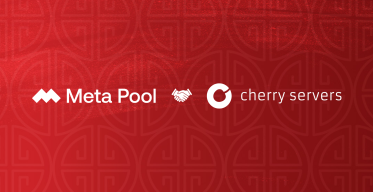How Everstake Optimized Their Solana Node Setup with Cherry Servers

Solana is one of the most demanding blockchain networks in terms of infrastructure. With its ultra-fast block times and high throughput, running a validator or RPC node requires much more than just spinning up a standard server. You need bare metal performance, predictable latency, and precise hardware tuning.
Whether you're a validator participating in consensus or an RPC provider serving applications and explorers, you need enterprise-grade hardware, low-latency networking, and fine-tuned performance to keep up with the protocol's requirements.
At Cherry Servers, we’ve worked closely with leading validator teams like Everstake to design and deliver tailored bare metal setups, ensuring our infrastructure can handle Solana workload requirements.
Therefore, we’ve put together a brief overview of how to choose the right setup for your Solana nodes, based on real-world experience from teams already running production environments on our platform.
#How to Choose the Right Solana Node Setup: Step-by-Step
#Step 1. Start by Defining Your Node Type
Validator Nodes participate in consensus and require ultra-low latency, high availability, and compute consistency. RPC Nodes serve traffic to explorers, wallets, and apps, needing high disk I/O and concurrency. Your node type determines everything — from CPU to storage layout.
#Step 2. Match Your CPU to the Workload
Validator CPUs: AMD EPYC Gen4 (e.g. 9254P, 9354P), 24–32 cores, ≥2.8 GHz base clock. RPC CPUs: Same families, but 32–64 cores depending on expected request load. AVX2 and SHA extensions are strongly recommended.
#Step 3. Don’t Skimp on RAM or Storage
RAM: 256 GB minimum for validators, 512–768 GB for RPCs. Storage: Use Gen4 NVMe with separate drives for OS, ledger, and accounts/snapshots. Solana is memory- and disk-heavy. Proper segmentation ensures reliability.
#4. Ensure Proper Bandwidth
Solana validators need a minimum of 3 Gbps for data throughput. Cherry Servers supports this baseline across supported plans. Note: Solana nodes don’t currently require GPUs. Focus your resources on CPU, RAM, and NVMe.
#Why Everstake Runs Solana Nodes on Cherry Servers
Everstake began working with us in mid-2024 to deploy their Solana infrastructure. Our customizable bare metal servers allowed them to test new configurations, fine-tune performance, and confidently scale. They now use our platform to host production-grade validator nodes, relying on stable networking, high IOPS, and hands-on support.
“Cherry Servers offered exactly what we needed: customizable, transparent infrastructure and responsive support tailored to demanding blockchain workloads.” – Everstake DevOps.
Want the full deep-dive? Check out the extended guide on Everstake’s blog.
Let us know if you’re planning to deploy a Solana node. Our team is here to help you get started with the right setup!
Get 100% dedicated resources for high-performance workloads.



